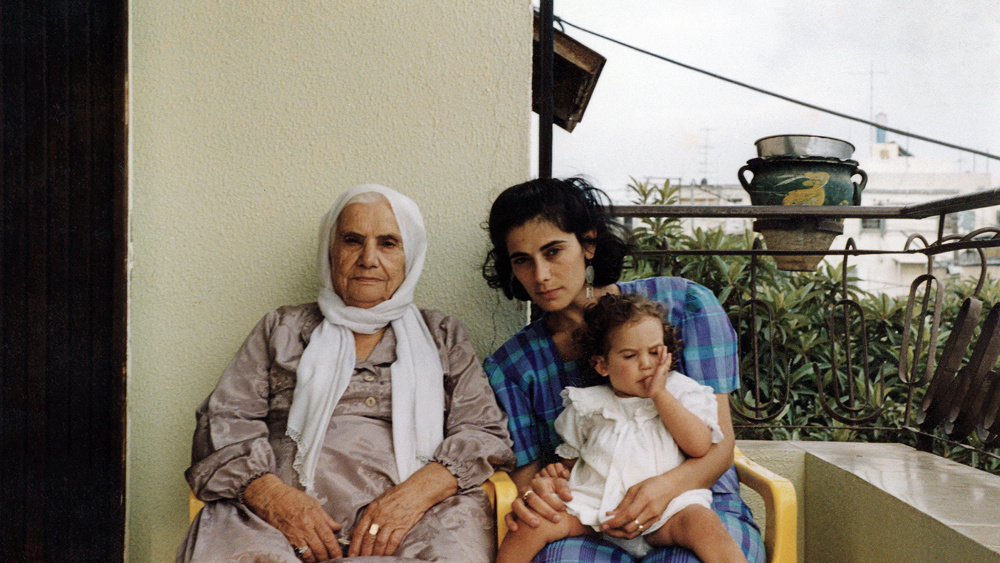
As you read this, new titles from filmmakers of Tunisian, Moroccan and Franco-Palestinian-Algerian heritage are making their mark at the Venice Film Festival, while Toronto Film Festival will premiere a trio of first features from Saudi Arabia, along with discoveries from the UAE and Palestine, plus a handful of Arab titles screened at Cannes and Venice. Those in the know say that the annual number of Arab films produced has increased along with the emergence of new filmmakers, and that fall festivals such as El Gouna, Marrakech, Cairo and Red Sea will be chockablock with fresh regional titles.
Last year, Venice boasted a remarkably large crop of Arab-language features, but a strong Cannes 2023 selection of Arabic cinema that claimed kudos in various sections of the French fest left the Biennale with a picked over selection. Nevertheless, Venice can claim credit for nurturing this year’s Cannes Critics’ Week prize-winner “Inshallah a Boy” through its essential Final Cut in Venice industry program. Likewise, the Cannes Un Certain Regard title and best documentary co-winner “The Mother of All Lies” also benefited from Final Cut, as did this year’s Venice Days selection “Backstage,” a provocative drama boasting characters from the world of contemporary dance.
Final Cut in Venice supports films in post-production from five countries in the Middle East: Iraq, Jordan, Lebanon, Palestine and Syria, as well as all African countries. Its goal is to enhance the bridge-builder role of Venice by supporting the production of independent, quality films and promoting their competitiveness on the international market. Alessandra Speciale, curator of Final Cut in Venice, notes, “We received no fewer than 74 work-in-progress films, an increase of 27% compared to last year. It is a sign that production is settling down after the COVID crisis period.”
Among this year’s Final Cut selections are feature and documentary co-productions from Franco-Lebanese, Palestinian, Tunisian and Iraqi helmers with projects set in Africa, Israel, Sudan and Iraq. Their films, along with three African projects, are eligible for a baker’s dozen of cash and in-kind post-production awards.
In general, the Arab cinema selected for festivals boasts a far more daring formal language, a greater variety of genres and dares to confront the taboos of society. These characteristics are especially apparent in two of the documentaries from female helmers screening at Toronto: Tunisian Kaouther Ben Hania’s “Four Daughters” and Moroccan Asmae El Moudir’s “The Mother of All Lies.” The two films shared the Golden Eye for best documentary in Cannes.
“Bye Bye Tiberias,” world premiering at Venice and then segueing to Toronto, is another family-focused documentary by a female director. Here, helmer Lina Soualem mixes archival material and contemporary footage to trace four generations of women from the family of her Palestinian mother, renowned actress Hiam Abbass, who had a pivotal role on “Succession.”
Saudi Arabia has a stronger influence in the regional cinema this year. Money from the desert kingdom is helping to co-produce or support numerous films from Arab filmmakers, while the number of Saudi directors is on the rise. Antoine Khalife, director of Arab programs for Jeddah’s Red Sea Intl. Film Festival, explains that the festival’s Red Sea Fund is responsible for bringing more finance to local films. He, too, notes the increased availability of home-grown Saudi films, saying that he has eight or nine features to consider for their upcoming event.
Toronto’s selectors fell for Saudi films in a big way this year, with the three chosen titles coming through their open submissions process. International programmer Nataleah Hunter-Young notes that Ali Kalthami’s dark comedy “Mandoob” and Meshal Aljaser’s madcap creature feature “NAGA” are part of the same Saudi film collective and production company, Telfaz11, known for getting their start locally producing popular viral content on YouTube. “I think there is reason to expect a lot more from emerging Saudi directors as well as a continued expansion of Saudi Arabia’s presence as a production or co-production location, as is the case with Egyptian director Abu Bakr Shawky’s ‘Hajjan’ and Tunisian director Ben Hania’s ‘Four Daughters,’” says Hunter-Young.
In a sign that the new Arab directors are embracing genre storytelling, “NAGA” marks the first Saudi film selected for Toronto’s Midnight Madness program.
Toronto programmer Peter Kuplowsky says, “I am often looking for films that rattle an audience within their opening minutes, and more than any other title in my selection this year, ‘NAGA’ just blew me away with its shocking prologue. It perfectly set the stakes of the story, and as it unfolded I only became more and more impressed with how [director] Meshal was navigating so many potent and provocative themes, and never at the sacrifice of character or momentum.”













